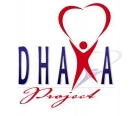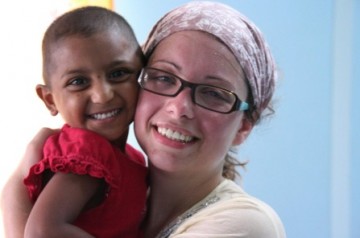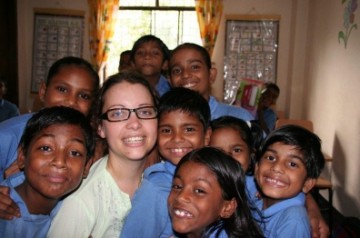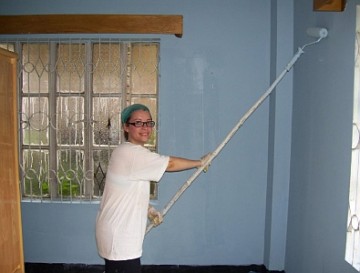12/26/2007
Cristiana volunteer feedback
What biggest cultural differences have you found in Dhaka?
There, everything is different. Having more than 90% Muslim believers they only stop working on Fridays to pray; there are no 2-day weekends as here in Portugal.
What happiest moment have you had there?
For me, the happiest moment has been, for sure, when I met ''my daughter''. Toni is a girl, like so many others who study and are the wings of our project, very sensible and needing cherish but having a strong personality what made me believe in her potential.
And what has been your saddest moment?No doubt, the worst moment was when I had to leave Dhaka. I was afflicted all the last day and it was hurtful to me to leave the kids, Maria and all the team and staff who work with her.
What is the real dimension of The Dhaka Project in the field?
The Dhaka Project has a nursery, a day care centre, a preschool, a primary school, a used clothes shop, a grocery store, a carpentry, a fleet of rickshaws to rent, a cooking school, a sewing school, the doctor, the dentist, the beauty centre where ladies have formation and from later go to work in hotels. Before arriving in there I had never imagined about so many activities in the project. But after being aware of this reality so different from ours, I think Maria is right and think like her: “We are already doing a lot, but why not to do a bit more?”. This is the Dhaka reality, growing, believing that it is possible to rescue those kids out of the streets and don't get stuck to values, numbers, when the reality is quite different.
What has moved you to sponsor that child...?
My love for Toni was a 'love at first sight'. She is a very special baby-girl and very similar to me, with a strong personality but at the same time a sweet of girl. We had days in which, whenever I was in the nursery, she was all the day close to me kindly and in a dear mood. But she had her bad days too, specially when she didn't feel in a good mood.
What would you say to a volunteer who was about to go now?
In first place I would say him/her to take all possible info about Toni to me. Then I would say to have a traveler's appointment with a doctor, tell the doctor how many days I would stay there, to have him prescribing adequate medication. I would recommend that in any case drank water not bottled and sealed, because in many places traders sell water-bottles refilled from domestic taps.
And I'd recommend him/her to play a lot with ours kids in the project that is what the need more, besides all needs, they need tenderness and affect too. Finally I would ask if I could hitch a lift...
Which are the most urgent needs you found there?
The kids and the people working with the project are relatively well, they have their basic needs satisfied. For that, in my opinion, the most urgent need is our continuous support to Maria, sending donations to the field, so that we can help all those who are already there and, at the same time, be possible to keep rescuing children from the streets.
How is it to live with the fact of the drinkable water be a rare luxury?
The water is not drinkable but people born there have always drank it and the have health problems due to it though their body system reacts in a different way from ours. But it is difficult to keep potable where it rains from May to October due to monsoons, there are rubbish everywhere and where there are no sewers.
Which is the average level education of Bangladeshi people?
The right answer would be, the life school or the streets school. Our kids study until the end of basic teaching and then the secondary schools are not accepting those who wish to continue studying because they come from the streets what is appallingly shocking.
Have you known any case of success of a family who have done the transition and being now out of the Dhaka Project? How is their life after leaving the project?
Maria, sometimes gets jobs for some families there in Dubai and those are our success cases, the only they need is to learn English to go to Dubai. But, some stay even in Dhaka working for beauty centres in hotels, as drivers, etc.
How is the climate?
The climate in Dhaka is hot and humid having monsoons from May to October, with lots of rain and floods. But above all hot, very hot weather.
Are there any first need goods?
Yes! There are first need goods! In Dhaka, cooked rice is a first need goods.
What airline have you traveled with to go to Dhaka?
I traveled with British Airways. But I know that the airline company that Maria works with, the Emirates Airline, flies to Dhaka. However, Emirates doesn't fly to Portugal so, you would have to fly to other country where Emirates has flights to, and once from there you could travel with Emirates to Dhaka. For example, United Kingdom (London).
Which has been the situation in Dhaka, you felt you most made a difference?
It is very easy to feel we make a difference in Dhaka. They are people much in need, specially the children, who we work more directly in our project.
An English spoken class, in which we teach them how to use board papers, scissors and all that sort of material let them very happy. Some are creative and able to draw anything different, but many draw the Bangladeshi rose, the Tomb of Dhaka and the most draw their country's flag.
Once, in the street in Dhaka downtown faraway from Gawair, where The Dhaka Project is situated, a gentleman riding his motorbike, stopped; he asked in English where I was from, I replied I was Portuguese and explained why I was in Dhaka, he said he knew the Project adding he was a policeman, not being in uniform because it was his day off, saying 'thank you for visiting my country' and asking if I was enjoying Dhaka.
All them, in any age, are highly proud of their country, their culture and their lives and when I made an effort to pronounce any word in Bangle, or whenever I used their tunics much longer than ours, they felt proud for that and show gratefulness for visiting and helping The Dhaka Project.
What are the ages and the ratio boys/girls?
In The Dhaka Project we have the nursery and the day care centre with children from their early years until 4 years, respectively, after this they are transferred to the preschool where they are until they are 6. Then they begin the primary school until the end of the basic teaching. There are more girls than boys but the difference is not much significant.
Which is your main advice to the next volunteers?
Live and respect Dhaka, all has its own rhythm, they are a people who live the same routines for years and years, try to create new routines.
Teach English to kids and adults.
Give lots of comfortable lap and much tenderness to all in nursery.
Take pictures of my girl Toni :), this is a tuga* volunteer knack :), I only wish to see how she grows up.
Play much, run and jump in the preschool.
They are a sympathetic people, but cold, their misery doesn't allow them all this joy and happiness we try to 'leave' in the children, even for a short for a short time, but they always recall the volunteers, when we show them their pictures.
All you think is not correct in the field, or worth to be changed, report it to Maria if she be in Dhaka, or to one of her team members, she began the Project with them in who she much trusts, and propose changes.
And now as big as Dhaka hug to the two volunteers who are going to Dhaka in December.
* funny and friendly reference to Portuguese dwellers.
10:55 Posted in Volunteers Feedback | Permalink | Comments (0)





The comments are closed.